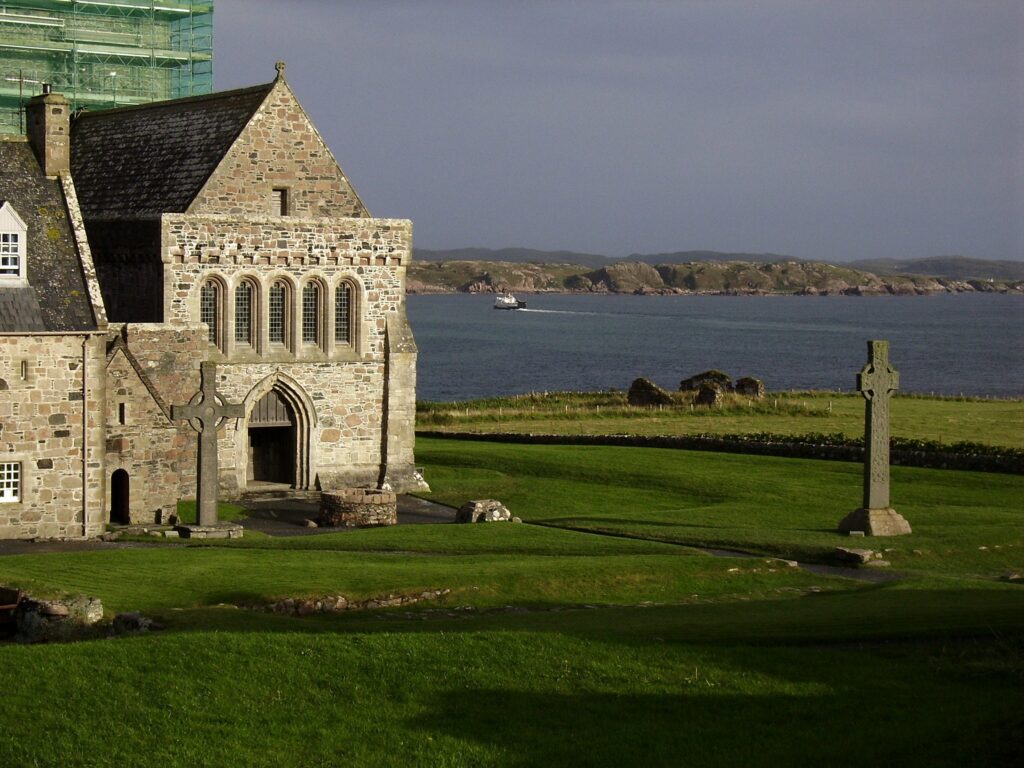Iona’s Betrayal

Oswald had been sufficiently renowned in the battles he took part in alongside the men of Dal Riada to earn an epithet: Lamnguin, the White Arm. For their part, the monks of Iona, who knew the young man well, gave him the blessing of St Columba in his enterprise. The betrayal of Iona continued to rankle for many centuries; the Moliant Cadwallon, a eulogy to Cadwallon written a century or so later, includes the triad:
From the plots of strangers and iniquitous monks,
As water flows from the fountains,
Long shall be our weeping for Cadwallon.
The Britons of Gwynedd might have hoped that the monks of Iona would take the part of their king rather than that of an Anglo-Saxon ætheling. Cadwallon’s success, in throwing down Edwin at the height of his power and ravaging the kingdom of Northumbria, came, in retrospect, to represent the last chance to throw back the encroaching Anglo-Saxon hegemony over lowland Britain.
While it might seem unlikely that battles between armies that consisted of, at most, a few hundred men, could have long lasting consequences, there are other instances where we can see that this was definitely the case. Fifty years later, with Northumbria at the height of its power, it seemed that the Northumbrians might expand their realm to take in all of lowland Scotland. But the Northumbrians suffered a catastrophic defeat at the Battle of Nechtansmere in 685. Their king, Ecgfrith (Oswiu’s son and heir), died there, as did all Northumbrian ambitions towards northern expansion. The battle basically ensured that there would later be a Scotland.
0 Comments